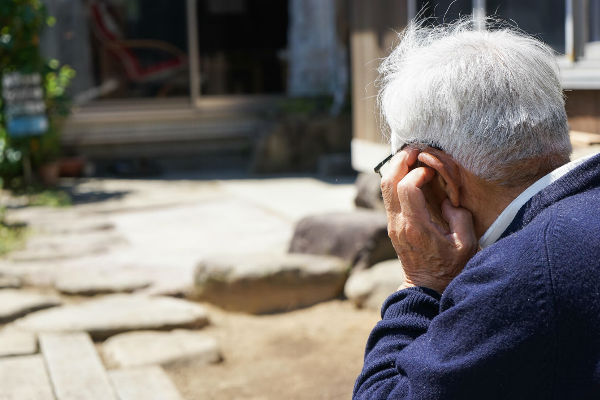INTRODUCE
Japan is at the forefront of countries that are facing rapidly aging populations and the issues that come with them.

PRESENT
STEP A EXPRESSIONS
Go over the first two expressions with your tutor and answer the questions. Then, guess the meaning of the third expression based on the clues provided.
1. One’s pension is the money a retiree is paid by a government or a private company after a certain age.
My mother was able to get her pension at age 63, and my dad got his at age 65. I’ll be lucky to get my pension by age 68, though.
Q: At what age will you be able to get your pension?
2. Life expectancy is the age to which a normal person is expected to live.
When my grandparents were young, life expectancy in Japan was under 50. Nowadays, it’s over 80!
Q: Do you think the average life expectancy in Japan will ever surpass 100?
3. .
Japan’s aging society is a ticking time bomb that is set to go off. In just a matter of years, we’ll start to really feel the enormous financial and social consequences of it.
Q: What do you think a ticking time bomb means?
STEP B SPEAK YOUR MIND
Sometimes you want to express a lack of surprise.
He eats out for lunch every day.
I know! It’s no wonder that he never has any money before payday.
UNDERSTAND
READING
This is an article about Japan’s aging society.
Reality Bites: The Problem of Growing Old in Japan

Imagine living in a time when there are more than 68,000 people over 100 years old. A time when adult diapers outsell baby diapers. A time when the birth rate drops year after year until the death count outnumbers it. For Japan, that time is now.
Although a number of countries around the world are dealing with aging societies, Japan is at the forefront of the issue. In 2016, the number of births fell under 1 million for the first time since the turn of the 20th century. At the same time, life expectancy increased to an average of 83.7 years. With these figures, it’s no wonder that the economy is straining to keep up.
How does this unique situation impact the economy, you ask? The shrinking population means that as more and more workers reach retirement age, there are fewer and fewer people to replace them. In addition, the increasing number of retirees have to depend on the decreasing number of workers to fund their pensions, healthcare, and other social welfare needs. Will these systems even still exist by the time new workers retire?
The situation is clearly a ticking time bomb. Japan has proven itself to be resourceful, though, and many are hoping that the country will figure out a way to deal with the issue before it’s too late.
COMMENTS
MoriNaomi:
Why do we have to pay for those old codgers’ pensions when no one will pay for ours in 30 years?
SamYG:
Don’t blame me for the shrinking population. My wife and I have three kids!
TRIVIA
In English, the informal terms geezer, old codger, and old coot can be used to refer to old people, particularly old men. Be careful: While they can sometimes be used as terms of affection, they’re more commonly used in a negative manner.

PRACTICE
Are the underlined expressions used correctly? If not, change the sentences.
- Andrew’s anger issues are a ticking time bomb. One day, he’s probably going to get fired because of them.
- Nick got his pension when he turned 10. He got about $5 a week.
- Bhutan’s life expectancy is one of the happiest in the world.
- Rising property prices in that area of the city are a ticking time bomb. They caused a lot of issues in the early 2000s.
- Generally speaking, women have a higher life expectancy than men.

CHALLENGE
Challenge 1
Your friend saw an old man get arrested for shoplifting at a convenience store. Read a blog post about some surprising consequences of Japan’s aging society. Then, talk about it with your friend.
Today's Expressions
- one's pension
- life expectancy
- a ticking time bomb
Speak Your Mind
- It's no wonder that…
Tina Says What?!
your daily dose of crazy news and facts
Nursing Home Prisons – What?!
November 13

I was recently shocked to find out that nearly one fifth of all crimes committed in Japan are done by the elderly. Apparently, some detention centers are more like nursing homes than prisons now!
Japan has the second largest population of people living past their 100th birthday in the world. There are over 68,000 centenarians in the country! While a long life expectancy is a good thing, it can be very hard once you run out of money.
Japan does have a pension system, but for many retirees, their pensions are not enough to live on. Of course, many people save money for retirement as well, but who expects to live so far past their 80s? When the money runs out, they are often put in a very desperate situation.
Some senior citizens end up going back to work. But what happens if you’re too old to work? Well, the shelter, food, healthcare, and even companionship that you can get from prison starts to look good. Experts say that many elderly criminals commit minor crimes like shoplifting because they want to go to jail. “Better in prison than homeless,” one elderly man reportedly explained as he was sentenced for his 14th shoplifting offense.
Surely something can be done to make sure that senior citizens don’t turn to a life of crime in their golden years.
Challenge 2
What do you think? What does your tutor think? Discuss.
 If Time
If TimeAllows
1 RETIREMENT |
2 GETTING OLDER |
|---|---|
|
1 RETIREMENT
|
2GETTING OLDER
|
FEEDBACK
I can read and understand a text about Japan’s aging society.
LESSON GOAL ACHIEVEMENT
-
4
Very GoodCould complete the task with ease
-
3
GoodCould complete the task with some clarifications
-
2
FairCould complete the task with additional instructions
-
1
PoorCould somehow complete the task with difficulty
PERSONALIZED FEEDBACK
- RANGE
the ability to use a wide variety of vocabulary - ACCURACY
the ability to speak correctly - FLUENCY
the ability to speak smoothly without pauses or fillers - INTERACTION
the ability to manage a conversation

